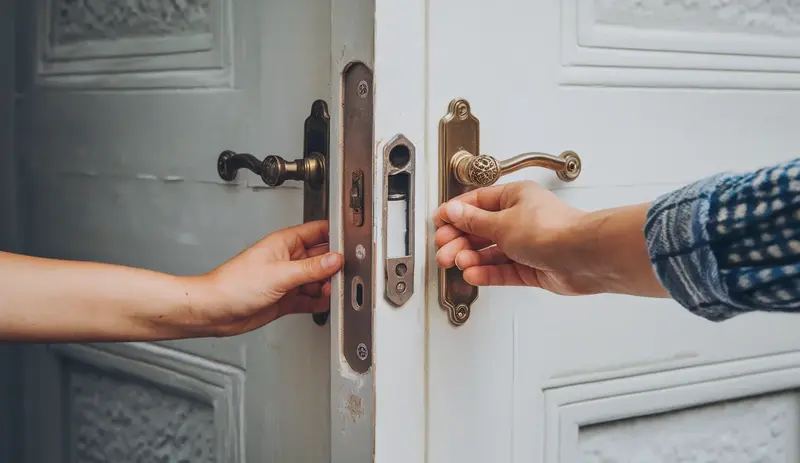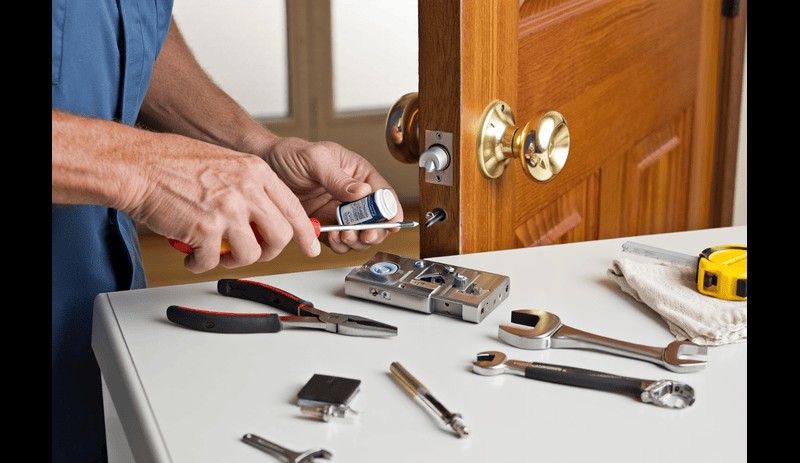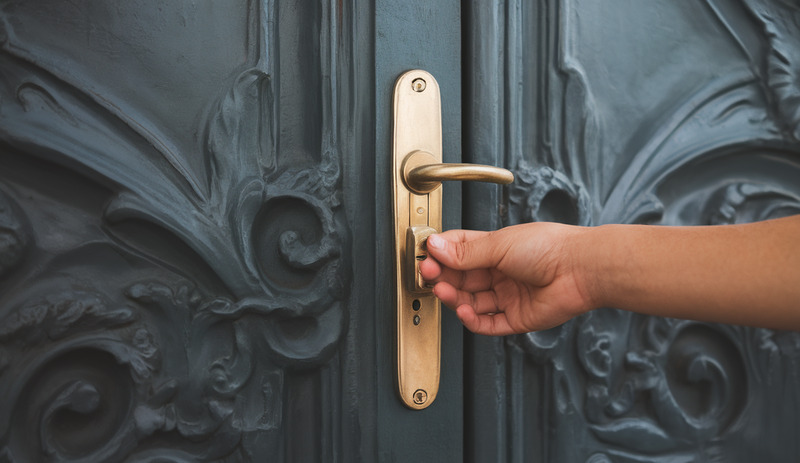
You’re turning your key, and something doesn’t feel right. The lock wiggles more than usual, and each turn feels uncertain. That loose, wobbly sensation in your lock isn’t just annoying—it could be a serious security risk.
At Near Me Locksmith, we see these issues all the time. A loose lock might seem minor, but it can quickly become a major problem for your home’s safety. Let’s break down what’s happening and what you can do.
When Your Lock Feels Loose: Understanding the Risks
Our first line of defense is locks. They protect our homes and businesses in silence. But what happens when that trusted guardian starts to feel a bit wobbly? We’ve helped countless homeowners in Denton, TX navigate the unsettling moment when a lock doesn’t feel quite right.
What Causes a Lock to Feel Loose?
Mechanical devices usually don’t age well, and locks are no exception. The common loose lock you find represents the first step toward a lock that isn’t going to do a very good job of locking.
Very few systems inside a lock are supposed to have anything but a very small amount of space between their moving parts.
If there’s too much space or if the lock’s parts are misaligned then the lock is no longer a system. Precision-engineered internal parts can break down over time. The pins, springs, and tumblers that make up a lock are some of the most precisely made parts in the world.
Are Loose Locks Dangerous?
Do not dismiss a loose lock as a trivial problem. This is not merely about an irritating jiggle; it is about a potential security weakness. A lock that is easy to compromise is far too easy to manipulate and hard to make secure.
Even worse, a loosening lock is more prone to total failure. Think about being locked out in a torrential downpour or discovering that your lock is suddenly open when it’s supposed to be secure. These are real risks that homeowners in our community face.
Can I Fix a Loose Lock Myself?
Basic tools can sometimes address minor issues. A screwdriver can tighten loose mounting screws and temporarily stabilize a lock. However, most lock problems require a locksmith’s training and experience to figure out.
If you can’t resolve an issue using simple methods, that’s a sign that your lock is in deeper trouble and needs professional attention. Countless DIY attempts have led to more harm than good.
A lock is a sophisticated mechanism that can quickly become a costly replacement.
If you like this also read this: Why Won’t My Bathroom Door Lock From Inside?
When Should I Call a Professional?
Here are the indications that shout “call a locksmith”:
- Your key doesn’t turn with ease
- The lock appears somewhat shaky or unsteady
- You detect odd grinding noises when using the lock
Advice for all situations: If your key breaks inside the lock, don’t try to extract it yourself. You could damage the cylinder and turn a simple problem into an expensive repair.
The Bottom Line
A lock that doesn’t latch properly isn’t just an annoyance; it threatens your security. Some issues can be resolved at home, but more often than not, you’ll want to consult a locksmith to ensure the problem isn’t in the lock mechanism itself.
A lock that you maintain well is your first line of defense. When you have doubts, trust a professional. They will correctly diagnose and resolve the issue the first time around, keeping your Denton, TX home safe and secure.
Don’t ignore a loose lock. What seems like a small problem today could become an expensive security issue tomorrow. Near Me Locksmith is always ready to help Denton residents keep their homes safe and secure.
Call us anytime we’re here to solve your lock and key challenges quickly and professionally.



